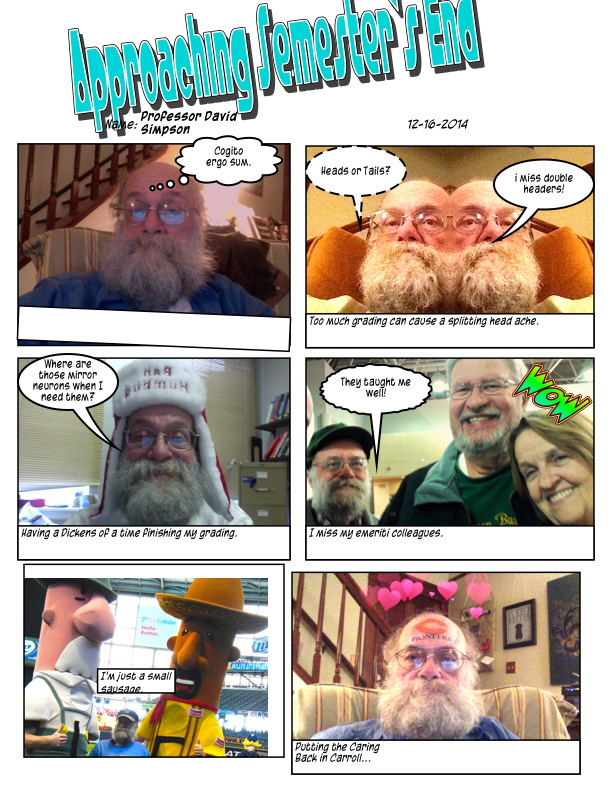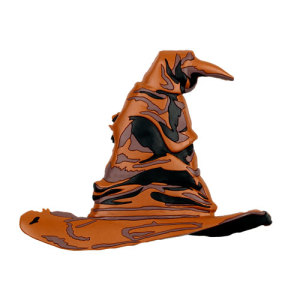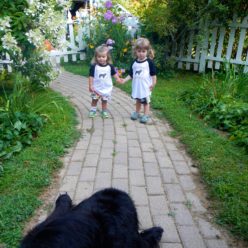
And some comfort from Mr. Rogers
Category: Carroll
Curious David Shares Secrets of Grading During the Christmas Holiday Season: My Magic Hat
Yet to be done:
1) Grade 18 papers critiquing and contrasting “The Scrooge Effect: Evidence that Mortality threat Salience Increases Prosocial Attitudes and Behavior” and “God is Watching You: Priming God Concepts increases Prosocial Behavior in an Anonymous Economic Game.”
2) Grade 20 twenty-page Statistics and Experimental Design Exams (having already graded 14).
3) A Planning and Budget Committee Meeting. I’m still pondering whhich hat to wear: Carroll College? DumbleDave? Santa Dave? Scrooge? Maybe I need a sorting hat?

I must discipline myself so that I can return to reading The Book of Strange New Things and Tris Hussey’s WordPress Absolute Beginner’s Guide.
Reflections on the Carroll Experience: Seven Voices (Please Add Yours!)
Please contribute to this VoiceThread conversation if you ever attended Carroll College/ Carroll University (Wisconsin). Contact me if you don’t know how to join the conversation.
Reaching Out Globally—Virtually
Help me out. It is official. My 6 very talented undergraduate research assistants and I have successfully "won" a university-wide competition with our proposal to create a pilot Cross Cultural Experience (CCE) at Carroll University with a focus on an in-the-classroom emersion experience. Each student will be awarded a new Ipad and will receive two-credit hours for pioneering this course development project.
along with students Phoumany Phouybanhdyt, Ryan Waters, Catrina Duncan,
Amy Peterson, Elizabeth Firkus, and Maxine Venturelli, proposed
a pilot that focuses on a single culture/nation for approximately 2 weeks.
By the end of the semester students will be able to compare and
contrast several cultures to the United States. The goal of the
classroom experience is to give the students the
ability to have an immersion-like experience through the different uses
of technology incorporated within the course through class discussion
and student reflection. Students will have the ability to interact
globally through the use of various 21st
century technology learning tools."
Dr. Simpson’s Neighborhood
Voice from the Past
Two annual especially emotional times for me here at Carroll are Commencement (parting is such sweet sorrow) and Homecoming weekend.
I’ll let the “movie” below do my talking since I need to make a PSY 205 Exam tonight. I must confess that I’d much rather being playing with technology right now. So much to learn.
My research assistants this year (6 fun, intellectually curious undergraduates) and I are experimentingwith Screencasting software. The “movie” below was producing using the Voicethread application and is a “sandbox version”—that is we are just discovering the application’s capabilities and uses. Do feel free to add your voice–I’d love to hear from you.
Thoughts while reflecting upon the May 2012 Commencement:Click the start button to play.
So what do YOU remember from your Introductory Psychology Class?
The semester is now 11 days old and I've made my best efforts to establish my credibility, build a stimulating and supportive learning environment, and learn with and from my students. I'm pleasantly caught in the flow of teaching.
I'm trying to build in some down time every teaching day to reflect, to evaluate, and where warranted to implement new learning tools into the classroom. However, I want to avoid chasing after flashy tools which in fact add no value to the teaching or learning experience. Nor am I particularly interested in being at the cutting edge of the latest educational fads or embracing purported best digital learning practices or essential 21rst century learning skills.
Still, a Luddite I am not. Here is a classroom use of technology that I now have woven into several of my classes. Drawing upon the research that repeated testing enhances learning, I have begun regularly building into my classes collaborative within class computer-assisted testing.
Here is a practice Introductory Psychology "unquiz." My 25 students collaboratively got 90% correct the first time (despite the fact that I had not lectured over the material)—and 100% the second time. Much to my surprise my 300 level students (most soon to be graduate-school bound) collaboratively got 100%.
Let's see how YOU do. You don't have to type in your true name or email address.
Here again is the "unquiz."
I would welcome your feedback.
I don’t read books…
"I don't read books," a young Carroll colleague recently told me as a second colleague nodded his head in agreement. "I just don't have the time for pleasure reading or for reading outside my discipline if I am also to keep up with my research agenda and stay abreast of the psychological literature. When I read I do it online."
Perhaps this is yet another signal that I am becoming a stranger in a strange land. Walk into my office and you'll see books lining the walls, stacked on the floor, on my desk, and piled on the chairs around my desk. Novels, short stories, poetry, and nonfiction—paperback and hardback, pages stained with coffee, annotated, or dog-eared and occasionally, dog-drooled upon. Follow me home to my study and you'll find more of the same! Books and the many authors who write so much better than I and who think in such
different ways than I have clearly shaped who I am and who I aspire to be. I am book-marked!
I love to read! Thank you first-grade teachers past, present, and future for engendering a love of reading in children. I especially enjoy reading books or articles outside the narrow confines of my academic specialization and by authors from different cultures. Though I own a Kindle, it lies in a drawer umplugged and gathering dust.Though I have on my computers applications that allow for reading ebooks, I find the act of reading on a computer an entirely different (and
less pleasurable) experience than reading print on paper. Though I have attempted to listen to audio books, I fail to be transformed by them in the same way as when I read the presentation.
Two recent psychology-related books which I read this summer are Richard J. Davidson (with Sharon Begley)'s The Emotional Life of Your Brain and Cathy Davidson's Now You See It: How the Brain Science of Attention Will Transform the Way We Live, Work, and Learn. Both are autobiographical in explaining the foundation of their research efforts.
R. Davidson (who was named by Time Magazine in 2006 as one of the 100 most inflential people in the world) makes a compelling case for the neurological stucture of six dimensions of emotional style:
- resilience (how quickly one recovers from emotions)
- outlook (how long one can sustain positive emotion)
- social intuition
- self-awareness
- sensitivity to context
- and attention (focus)
He suggests ways to measure and to change one's emotional style.
C. Davidson (of whom I first became aware because of her "This Is Your Brain on the Internet" course fame) provides a rambling, provocative, anecdotal and inspirational book which asserts that there is a mismatch between work and the ever-changing workplace and which shares her evolving thoughts about 21rst century literacy. She is scheduled to give a presentation and lead a faculty workshop at Carroll on October 8, 2012.
Most of my summer reading was fiction, however. What suggestions do you have for me to read next?
Returning to Campus…
The campus should be abuzz tonight with Friday's arrival of 740 new freshmen. Just sent an email to my 6 research assistants alerting them to the imminent removal of my invisibility cloak. One, predictably, replied within 30 seconds:). These special students increasingly play a critical role in my accomplishing things both inside and outside the classroom. They are fun to be with, bright, and hard-working —though at times we annoy each other! I enjoyed very much the creative Ibook they wrote last semester.
Trying now to finalize syllabi and better organize materials on my computers at home. Do I REALLY need 87 apps on my Ipad???? How best can I serve Carroll as a Technology Fellow?
This semester I'm determined to get more writing done. I am most successful in that endeavor when I block off a time to write every day—and do so. Time will tell.
This will be a semester of winnowing and improving course materials. I'm going to take the plunge and use a "free" online text as an ancillary reading source in Experimental Social Psychology.
It is becoming increasingly difficult to protect the traditions of Carroll College when fewer and fewer people here remember anything other than Carroll UNIVERSITY. This saddens me, but perhaps it is a sign. I am going to try and heed the advice of a trustee friend this summer who gently suggested that I was perceived by some as overly cynical.
I can learn much from the wisdom of Ruth and Abby Joy (below). Neither has a cynical attitude nor a negative thought.

